Hey there steemians!
My name is Cory Bradley aka open3ye and my goal is to open your eye to a whole world of flourishing regenerative abundance!
This is:
True Permaculture
Episode 2
Composting
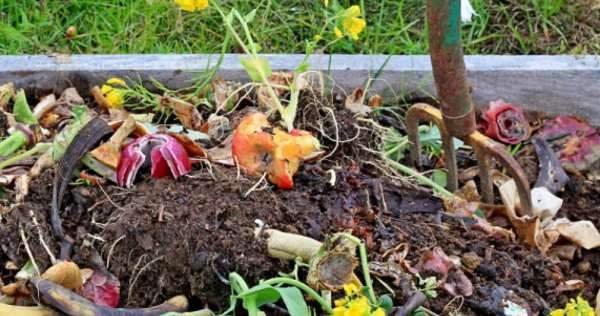
Of the things that each person could do to reduce waste in landfills and consequently fight climate change, composting is one of the top things thing that could make a difference in this world, and all we have to do is stop putting our food scraps and kitchen waste into the trash and start putting it into the soil.
As you will see in the infographic below 50% of typical municipal waste is compostable. And since landfill gas is approximately forty to sixty percent methane, with the remainder being mostly carbon dioxide, the cause of those gases come from the compostable materials that we choose to throw away. And while carbon dioxide is usually thought of as being the worst of the greenhouse gases(GHG) methane is roughly 30 times more potent as a heat-trapping gas which is why it is so ever more crucial that we all start composting because it could be one of the best ways to get everyone on this planet to help fight climate change, just by not throwing it in the trash.

We can all do our part, and this is me sharing how!
There are 3 basic types of composting
- Aerobic
- Anaerobic
- Vermicomposting
This is where it may get a little complex for some as I explain some biology but bare with me, I'll be showing you how to make compost soon.
Microorganisms such as bacteria, fungi, and actinomycetes account for most of the decomposition that takes place in a pile. These are considered chemical decomposers because they change the chemical composition of organic matter.
The larger decomposers or Macroorganisms such as mites, spiders, beetles, millipedes, earthworms, slugs, etc. are all considered physical decomposers because they grind, suck, chew, and tear physical matter into smaller pieces for the next chain in the grand soil food web.
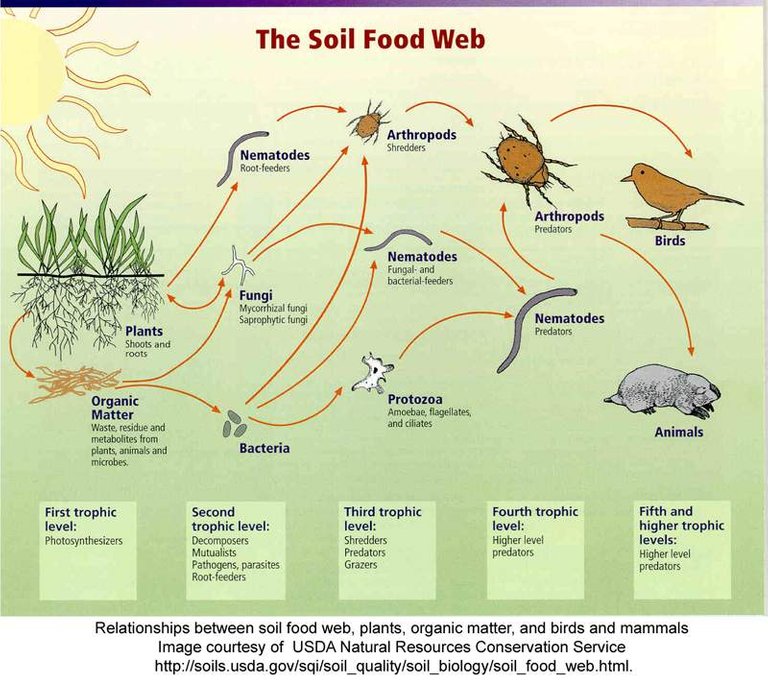
****Of all these organisms, aerobic bacteria are the most important decomposers.****
Abundant with millions of microbes present in just 1 teaspoon of good compost or decaying organic matter, they are the most nutritionally diverse of all organisms and can eat nearly anything.
Bacteria utilize carbon as a source of energy (to keep on eating) and nitrogen to build protein in their bodies (so they can grow and reproduce). They obtain energy by oxidizing organic material, especially the carbon fraction. This oxidation process heats up the compost pile from ambient air temperature. If proper conditions are present, the pile will heat up fairly rapidly (within days) due to bacteria consuming readily decomposable materials.
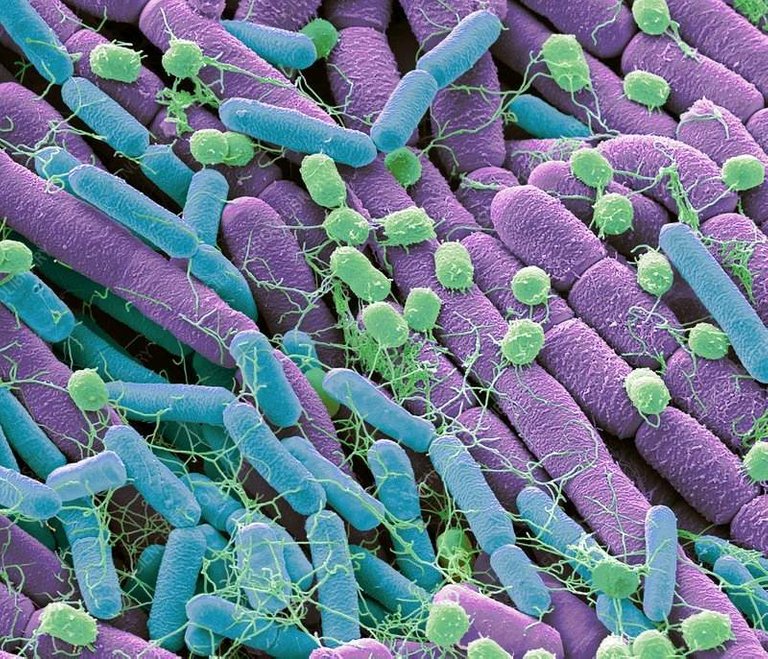
Scanning electron microscope image of soil bacteria
Changes in oxygen, moisture, temperature, and acidity can make bacteria die or become inactive. Aerobic bacteria need oxygen levels greater than five percent in order to live. When oxygen levels fall below five percent, the aerobes die and decomposition slows by as much as 90 percent. Aerobic bacteria are the preferred organisms for a compost pile because they provide the most rapid and effective composting. They also excrete plant nutrients such as nitrogen, phosphorus, and magnesium.
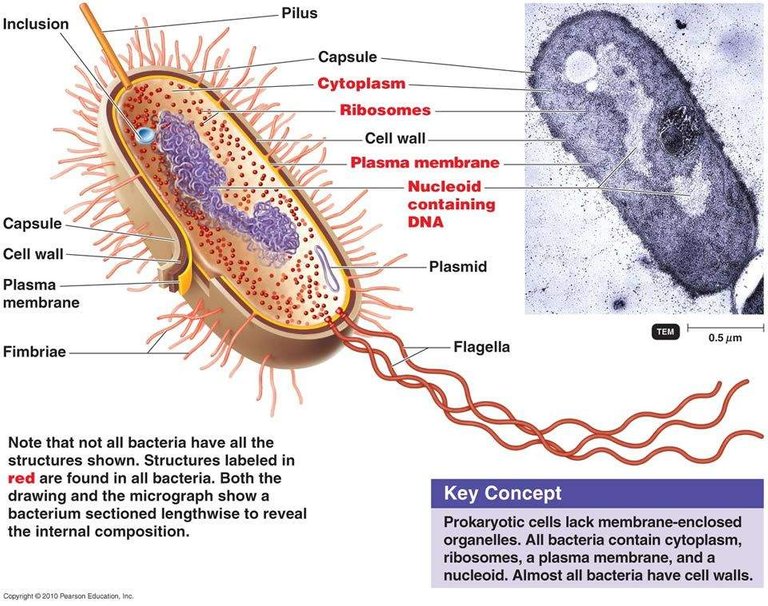
Bacterial biology goes through a series of changes with their populations varying according to the pile tempurature as the compost pile ages.
Psychrophilic bacteria work in the lowest temperature range. They are most active at 55° F and will work in the pile if the initial pile temperature is less than 70º F. As they continue activity in the pile the compost heats up beyond that where another set of bacteria take over.
Mesophilic bacteria rapidly decompose organic matter, producing acids, carbon dioxide and heat. Their working temperature range is generally between 70º to 100º F
Thermophilic bacteria take over decomposition as the pile reaches temperatures of 130º to 160º F where it usually stabilizes unless the pile is constantly fed new materials and turned regularily.
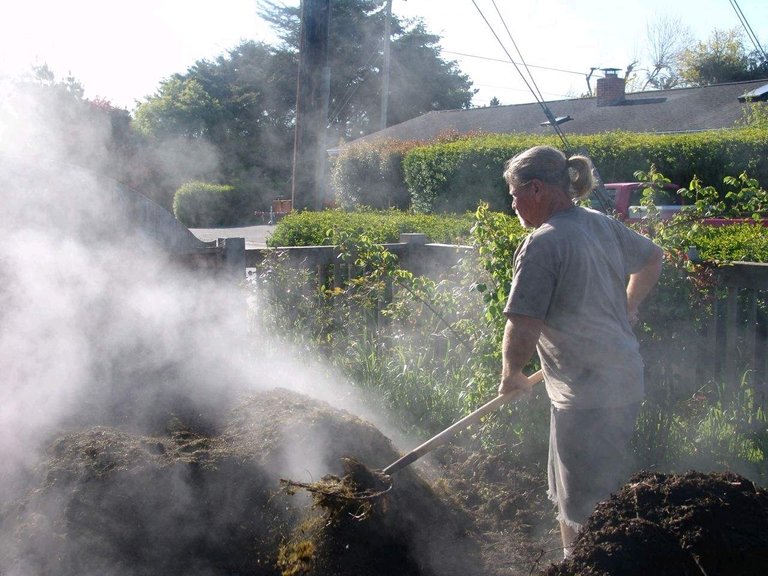
Hot composting is known to be the fastest method of making compost, and where it can be as laborous as using a pitch fork to turn the pile, it can also be as easy as rotating a tumbler.
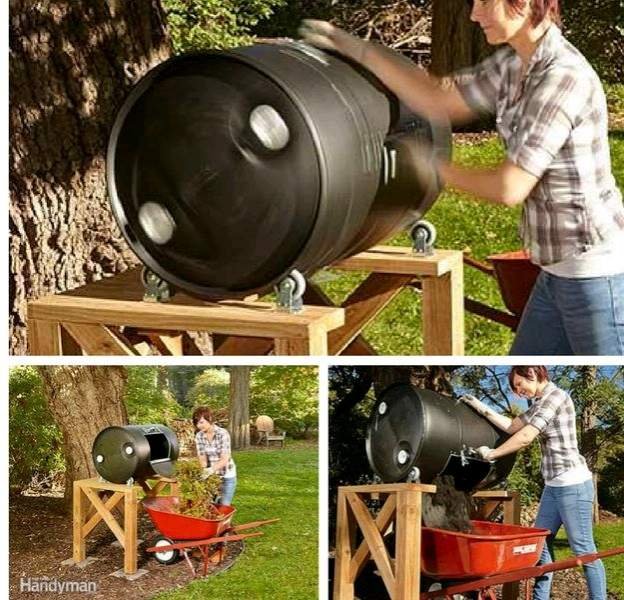
A compost tumbler is probably the easiest/fastest way to make compost because of its ease of access and its ability to add oxygen to the material with almost no work.
Now if your not concerned about how long It will take for your compost to be done you can just throw it out in an open pile somewhere in your yard and let it sit for a whole year, this is usually the method used if you have a large yard with a bunch of fall and spring cleanup waste because you end up making a giant pile which is very hard to turn and is typically very high carbon to nitrogen ratio so it needs the extra time to decompose.
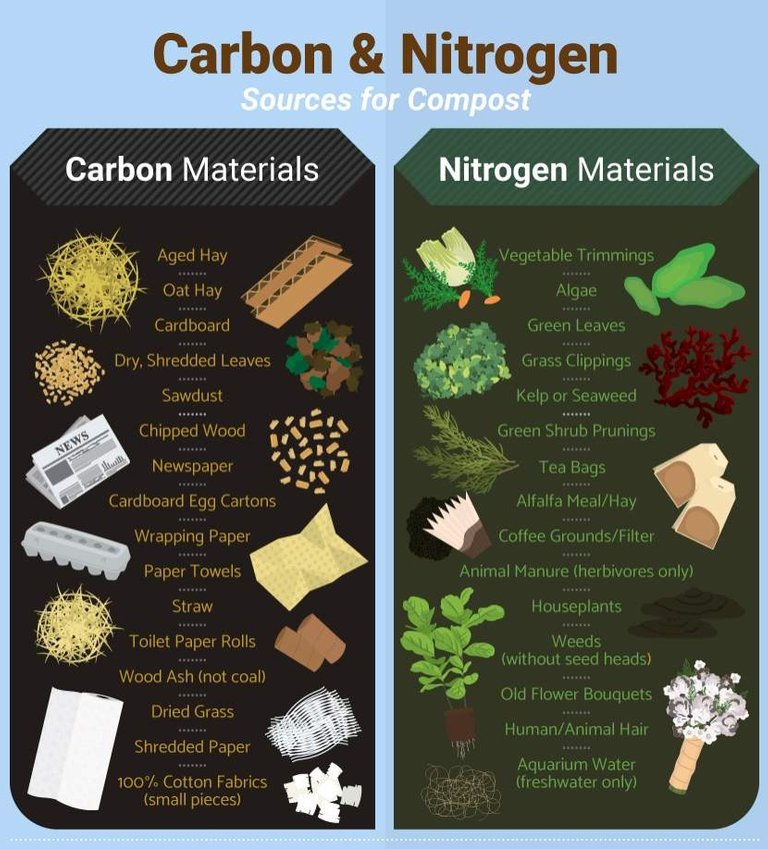
A C:N ratio ranging between 25:1 and 30:1 is the optimum combination for rapid decomposition.
If ratio is more than 30:1 carbon, heat production drops and decomposition slows, which is why yard waste alome takes so long to decompose.
If you want to provide the right balance of C/N then you may want to look into the individual ratios for each material that you add to your compost so you can make the best product possible. A general rule that is followed is that you can add 2 parts brown(carbon) to 1 part green(nitrogen), but that isnt always accurate because you can see below that some browns are actually high in nitrogen such as coffee grounds. And some browns are extremely high in carbon like sawdust or wood chips so you would want to use more of a 1:1 ratio if you have lots of those materials.
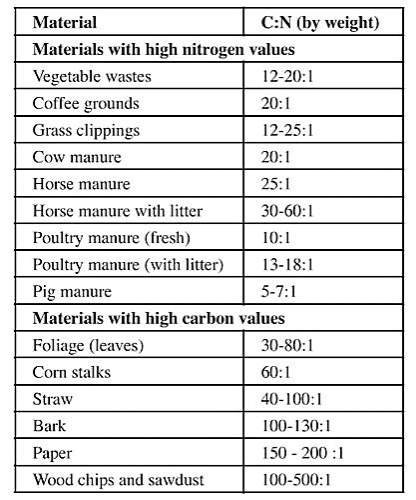
Of course this can get much more detailed with specific ratios for different types of manures and food scraps but for the average gardener a simple table like the one above should suffice.
You will also find various composting do's and don'ts floating around the web such as this one:
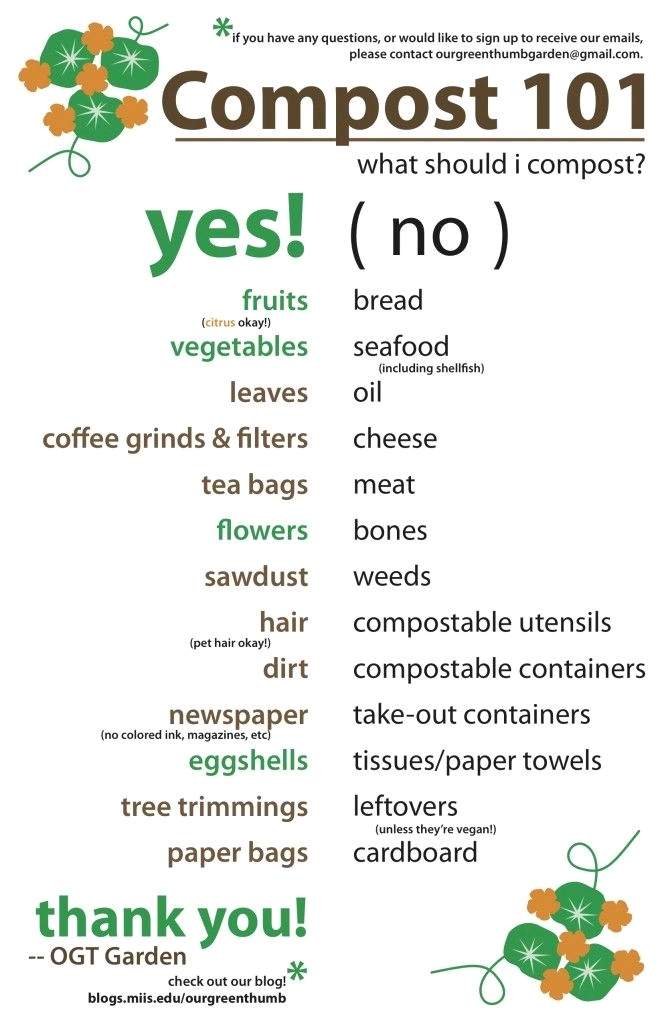
But this isn't exactly accurate information
For one cardboard, paper towels, and Compostable containers/utensils??? That last one literally says "compostable". And leftovers really? Who doesnt eat their leftovers?? But really though I have always composted bread and leftovers with no issues whatsoever.
As for meat, fish, and dairy products, those can be valuable materials in your compost but it ultimately depends on how you intend on composting which will then determine how you need to prepare your materials and what can even go in it. You should never put anything that has been treated with chemicals or pesticides into your compost no matter what method you use.
Many people have pets and would probably like to consciously dispose of thir animals waste but it can be potentially harmful so procede with caution.
Cat feces pose the greater threat to human health because they may transmit toxoplasmosis, a disease that is particularly hazardous for pregnant women, since it can seriously harm the central nervous system of an unborn child, resulting in fetal blindness, brain damage or other problems.
Toxoplasmosis is a parasite that causes disease in humans and other animals, but cats are the only animal known to excrete toxoplasmosis eggs in their feces. Composting cat litter is not enough to kill the diseases associated with cat feces. In order to kill toxoplasmosis, a compost pile would have to reach a temperature of 165 degrees Fahrenheit (73 C.), and most piles never get that hot.
Read more at Gardening Know How: Cat Feces In Compost: Why You Should Not Compost Cat Waste https://www.gardeningknowhow.com/composting/manures/cat-feces-in-compost.htm
For these reasons, feline manure should always be handled with care — and not at all by pregnant women — and should never be used in the food garden. Instead, bury the waste in nonfood trees.
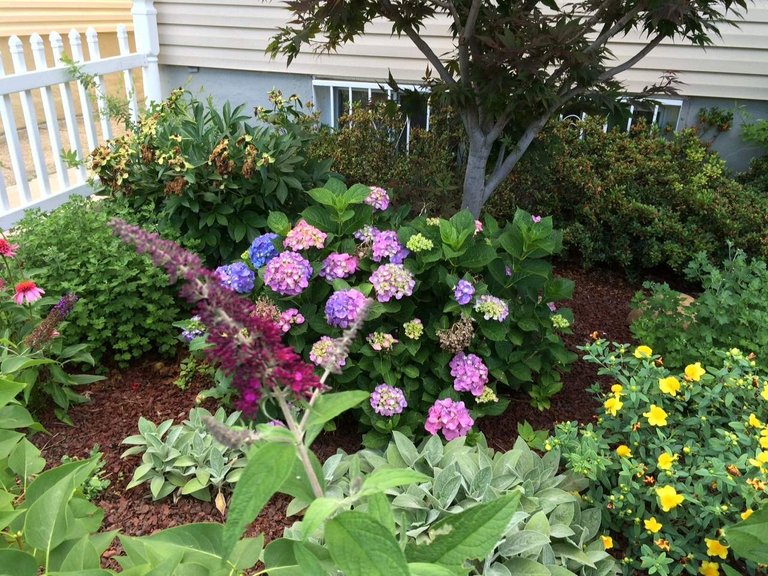
Now that you know how composting works and what you should and shouldn't do I will show you a few various methods of composting and what materials you should avoid when using each.
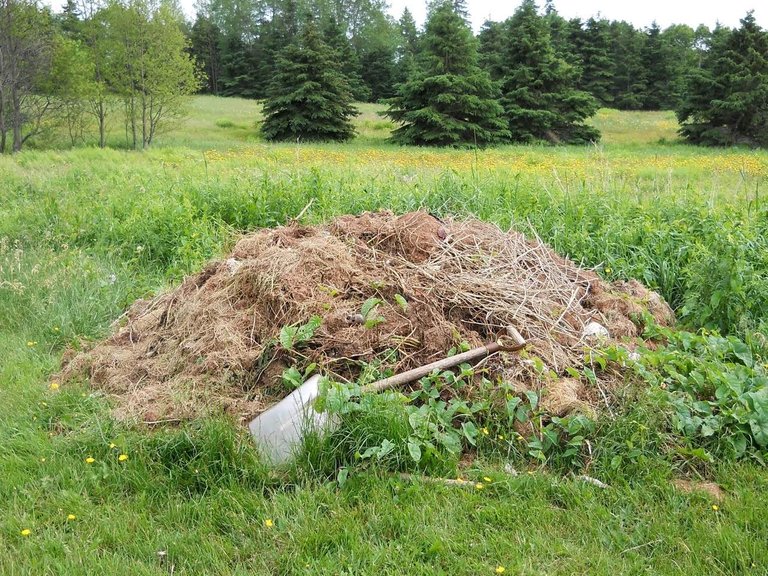
Open Pile method
Avoid:
- Meat
- Bones
- Fish
- Dairy products
- Pet waste
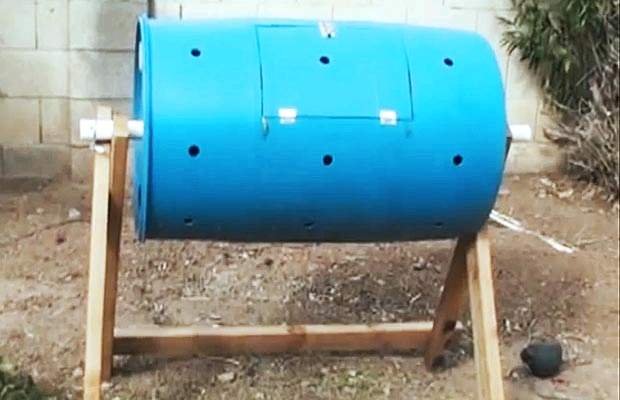
Compost Tumbler
Avoid
- Bones(okay when finely ground)
- Meat(okay in small quantities)
- Pet Waste
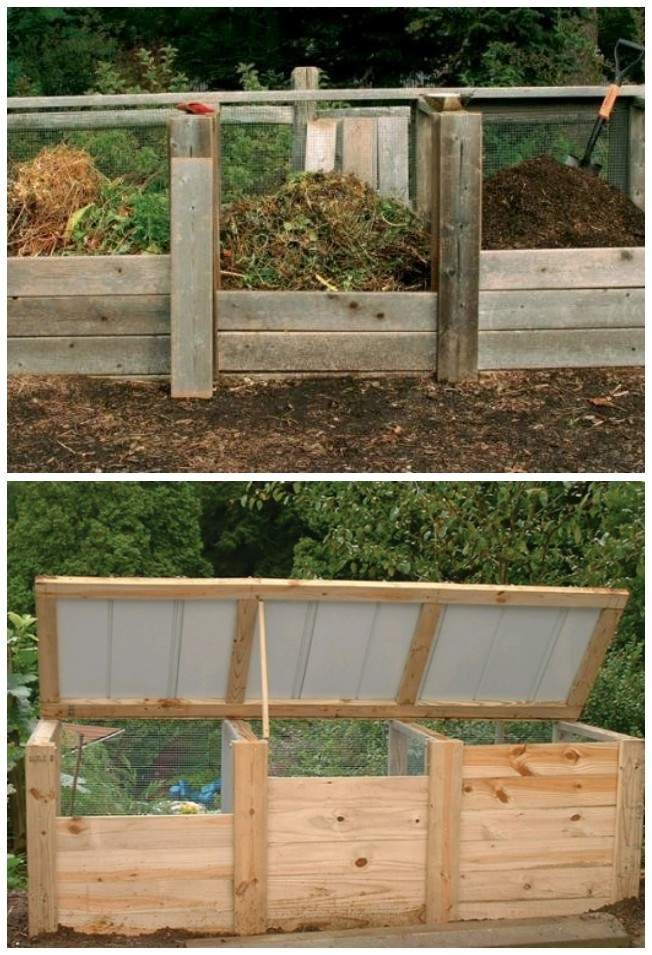
3 Bin System
Avoid
bones(okay crushed in enclosed systems)
meat(okay in enclosed systems
dairy products(okay in enclosed systems
Pet Waste
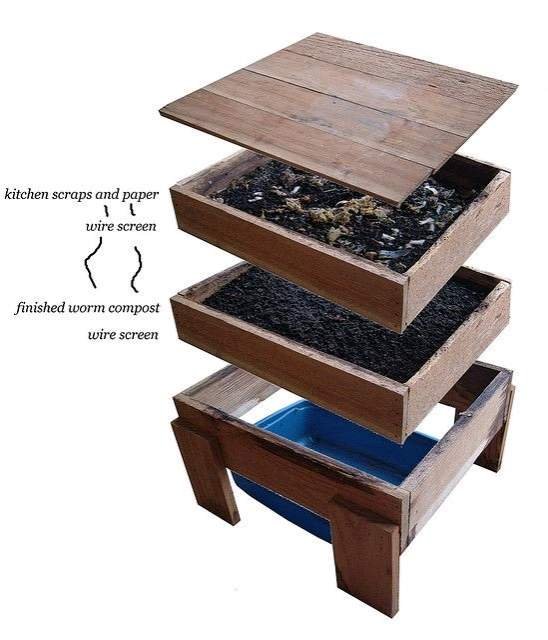
Vermicomposting
Avoid
- Dairy products
- Meat
- Fat
- Potatoes & potato peels
- Citrus
- Onions
- Pet waste
There are probably over a hundred different methods of composting each with their unique advantages and benefits which I will go into detail on several of them in a later article.
I think that about wraps it up for this weeks episode of.
True Permaculture
I would supper appreciate a resteem and a follow if you found this article to be informative and useful for you.
May the abundance be with you, and may you truly live your bliss!
Posted using Partiko Android
Wow - a nice beginners guide to composting in the western world. I say that since here in Thailand, composting is really challenging and many of the ratios, heat index things etc aren't relevant. Not to mention rainy season flooding and how compost piles need to be OFF THE GROUND. Lots of experienced composters and garden whiz people on steem - you should also try the #gardening and #homesteading tags. The rotating compost bins made me chuckle - we'd fill that in 2 days flat. :) We have a modest garden but SO MUCH VEGETATION in steamy lush Asia that half an hour pruning in the garden would fill it too. Nice post - more please, and especially appreciated it it's about YOUR composting experiences.
Leading the curation trail for both @ecotrain & @eco-alex.
Together We’re Making This World A Better Place.
Click Here To Join the manually curated trail "@artemislives" to support quality eco-green content.
@ecoTrain
Thank you, my experience comes from a very dry/hot summer Mediterranean climate so we dont really have to sorry about those high levels of moisture and yes you are quite correct thats why our environment/climate is the major determining factor in what system we choose, and whether its applicable for our specific situation. I wish we had that much vegetative growth, i would have loads of compost. For me I cant seem to make enough, though i do have lots of grass to compost.
Posted using Partiko Android
You've been visited by @thistle-rock from Homesteaders Co-op.
What a great post, so informative and easy to understand! I have a compost pile that I keep adding to but never seem to use, perhaps this year I will finally do so.
Resteemed!
A community marketplace of ethical, handmade and sustainable products available for STEEM, SBD (and USD): https://homesteaderscoop.com/
follow: @homesteaderscoop
You've been visited by @minismallholding from Homesteaders Co-op.
Some great information included here. I thought I knew most things about composting, but I've still learned something new. I'm most surprised to learn about toxoplasmosis in cat faeces! We occasionally get cats using our garden as a toilet and I always just buried it a bit deeper, often where I grow vegetables at a later point.
I've taken the liberty of giving you a shout out in the Homesteaders - Living Naturally newsletter.
A community marketplace of ethical, handmade and sustainable products available for STEEM, SBD (and USD): https://homesteaderscoop.com
follow: @homesteaderscoop
Hey thanks for the shoutout I really appreciate that.
Yah toxoplasmosis isnt exactly common knowledge, and I'm sure an occasional dropping in the garden wouldnt be cause for concern, especially if you have good soil, but its definitely something people shoupd be aware of.
Posted using Partiko Android
Congratulations @open3ye! You have completed the following achievement on the Steem blockchain and have been rewarded with new badge(s) :
You can view your badges on your Steem Board and compare to others on the Steem Ranking
If you no longer want to receive notifications, reply to this comment with the word
STOPVote for @Steemitboard as a witness to get one more award and increased upvotes!
Hi @open3ye, we are really happy and excited to note that other users here on Steemit have opened their eyes to the potential that nature offers and how these opportunities can be exploited, especially as regards the potential that the compost has. We really appreciate the accuracy and completeness of your post on this topic and that's why we decided to reward it. We also invite you to read the WhitePaper of our project that you find at the following link (WhitePaper) and maybe to collaborate with us in this wonderful project.
Greetings from the CooperFelix-Multiservices Team
The CooperFelix-Multiservices Team appreciates the content of this post by giving it a 80% upvote. We invite users to participate in the Project by offering a small donation on Fundition or following the project at the link: THE CF-M PROJECT.
Wellness Is Green
The image is owned by the author and the use, reproduction or quotation without authorization is forbidden